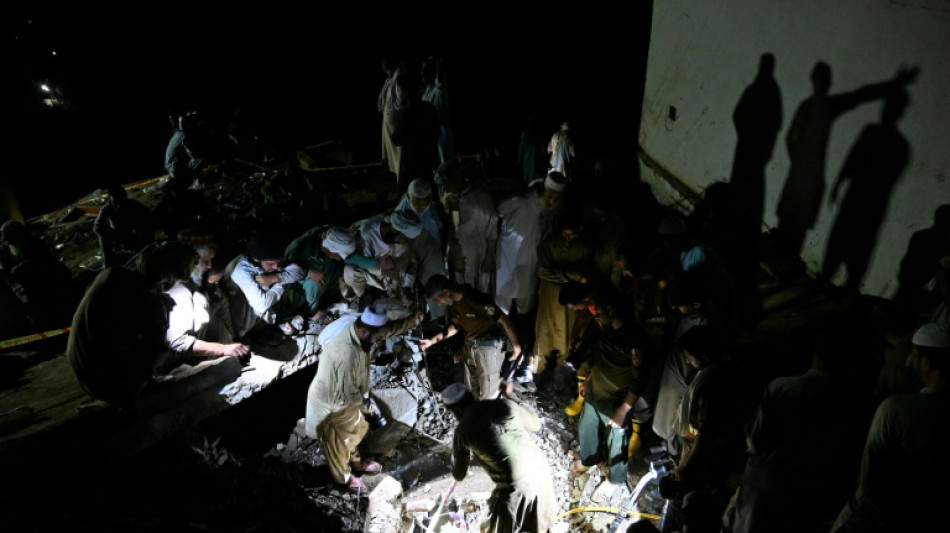In the middle of the night, by the glow of their mobile phones, rescuers and villagers dug through the concrete remains of flattened houses after massive rocks crashed down on a remote Pakistani village following a cloudburst.
Using hammers, shovels, and in many cases their bare hands to clear the rubble and open blocked pathways, they searched through the debris in darkness, with no electricity in the area.
In just minutes, a torrent of water and rocks swept down on the village of Dalori on Monday, destroying at least 15 houses, damaging several others and killing nine people.
Around 20 villagers are still trapped under the debris.
"A huge bang came from the top of the mountain, and then dark smoke billowed into the sky," Lal Khan, a 46-year-old local labourer, told AFP.
"A massive surge of water gushed down with the sliding mountain," he added.
The cloudburst above Dalori came a few days into heavy monsoon rains that have already killed more than 350 people across mountainous Khyber Pakhtunkhwa province, along the northwest border with Afghanistan.
Torrential rains in northern Pakistan since Thursday have caused flooding and landslides that have swept away entire villages, with around 200 people still missing.
And authorities have warned of fresh flash floods in the coming days.
Khan recalled seeing the hand of his neighbour sticking out of the rubble, where rescuers later retrieved her body along with those of her four children.
"We are absolutely helpless. We don't have the means to tackle this calamity that nature has sent upon us," Khan added.
- 'Like an apocalyptic movie' -
Fellow resident Gul Hazir said not one but several cloudbursts from two sides of the village struck the remote valley.
"It was like an apocalyptic movie. I still can't believe what I saw," Hazir said.
"It was not the water that struck first, but a massive amount of rocks and stones that smashed into the houses," Hazir told AFP.
Local administration official Usman Khan told AFP at the site that many of the houses had been built in the middle of the stream bed, which worsened the scale of destruction.
"There was no way for the water to recede after the cloudburst struck at least 11 separate locations in the area," he said.
"It is immensely challenging to carry out operations here, as heavy machinery cannot pass through the narrow alleys."
Saqib Ghani, a student who lost his father and was searching for other relatives, tried to claw through the concrete with his bare hands before rescuers pulled him away and villagers gave him water.
The single road leading to the village was demolished at several points, while gravel was scattered across the settlement.
Despite the challenging conditions, excavators were working at several sites to remove debris that had clogged the drainage channels and blocked the flow of water.
Dalori has already held funerals for five victims, while women mourned in darkened homes with no electricity since the disaster.
In the village's narrow alleys, unattended cattle wandered freely amid the devastation.
"I will not live here anymore," said a grieving woman, draped in a large shawl, as she followed a coffin being carried through the street.
Over the past few days, the villagers had been collecting money to help people in neighbouring flood-hit areas, until they too were overwhelmed by disaster and lost everything.
"We didn't know we would be needing help ourselves," Hazir added.
X.Thijs--LCdB
